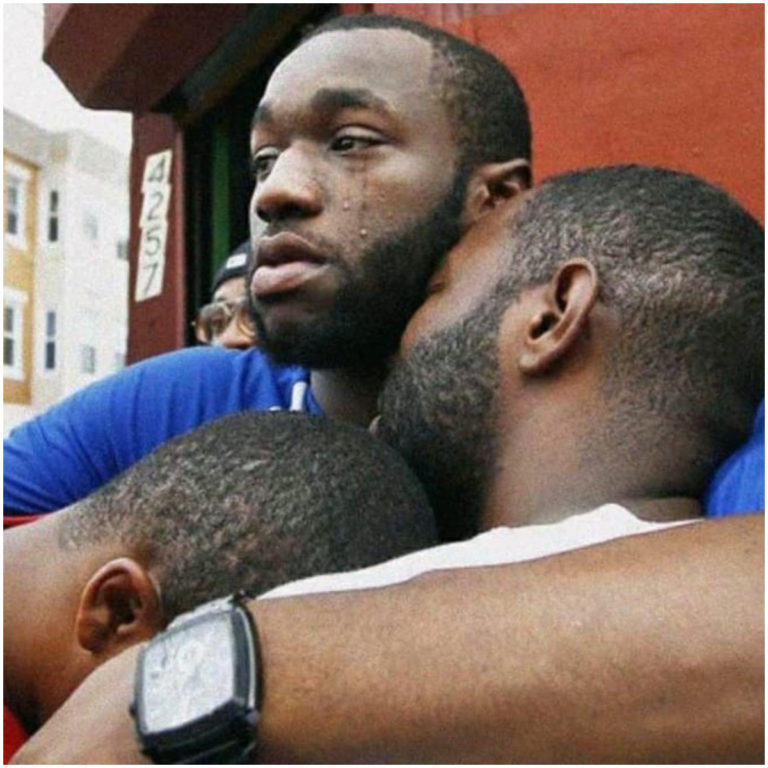As a child, Deji* watched friends and family turn his generous dad down when he fell on hard times. It changed the way he saw life.
Now, at 32, he opens up about how he’s working to break free from a scarcity mentality and accept the idea of sharing his resources.

As told to Adeyinka
We weren’t the wealthiest family in our neighbourhood, but everyone knew us for my parents’ parties.
Every little milestone was a reason to invite family and friends for a “small get-together.” Our neighbours could always count on us for at least one free meal every month.
But, things took a turn after my dad lost his banking job in 2002. He was among the workers laid off when Savannah Bank lost its licence. Our finances took a serious hit. It all felt so sudden, that I found myself wondering if my dad had even saved while he was employed. But I was too young to ask.
The parties were the first thing to go, and the way we ate followed–. My brother and I had to share a single piece of meat, and a sachet of milk was suddenly considered too much for one person to use. The private secondary school my parents always wanted for us also became an impossibility because they could no longer afford it. My mum was a civil servant, but her income was nowhere near my dad’s former salary.
Soon, the number of visitors to our house started to trickle down. Relatives who once showed up regularly for a good meal and a transport token stopped coming. Next, the non-stop phone calls my dad used to get reduced significantly.
After struggling and failing to find another job, my dad decided to start a business. He needed financial assistance to bump up what he had saved but when he called on friends and family who’d benefited from him to help out, they all suddenly “had one project to finish” or said “things were too tough.” I watched his spirit break in real time as he tried to make excuses for people he’d once prioritised over his family.
Seeing my dad go through that broke something in me.
In boarding school, I earned the nickname “akagum”—a slang for stingy people. I was unrepentantly stingy. The thought of sharing anything I’d worked to get was unbearable. If I’d gone through trouble to earn something, I felt no one else deserved it. My logic was simple: “Why should anyone who didn’t struggle with me get to share in the rewards?”
One time in SS2, I spent hours in a queue fetching water, only to have people who’d been lounging indoors all day ask me for some. I spat in the bucket and refused. They hurled insults at me nonstop, and I think I cried myself to sleep that night. I woke up the next day and carried on as usual; nothing changed.
It wasn’t until university that I started to see the consequences of my actions. Uni was harder than secondary school, and I soon realised I couldn’t navigate it alone. There were so many confusing processes, and I found myself needing help from others, something I wasn’t so keen on. I didn’t want anyone to feel entitled to ask me for anything in return.
It worked for a while—until it didn’t.
As I started to form friendships, people got comfortable enough to ask me for things. You know, the sort of petty requests you’d ask of a friend, a course mate or a hostel mate. “Ade, can I borrow your course material?” or “What did you cook? Can I have some?” My default answer was always no. Sometimes, I’d reconsider, but I had to say no first; it somehow satisfied me.
If my friends noticed this trait about me, they never called me out. Instead, they adjusted, and soon, I was the one getting a lot of “I don’t have” and “No.” At first, I didn’t mind. It meant I didn’t have to feel bad for turning them down.
However, it took an incident during our final exams for them to finally confront me. A good friend, who was my seat partner, needed a pen. I had three spread out on my desk, but I didn’t respond when he called me. In my head, I thought, “What if my pen stops working next?” After the exam, my friends gave me a good tongue-lashing. I think we actually got into a heated exchange. I argued that the invigilator could have caught me if I had been seen talking. Before we parted ways, one of them said, “This attitude will drive people away from you,” and he was right.
The real impact of those words hit me during NYSC. I’d just started dating my first girlfriend, who always bought me thoughtful gifts—shirts, colognes, food — despite our 28k allowance. Honestly, I wasn’t comfortable accepting them because I knew it meant reciprocating, which I wasn’t ready for. I couldn’t justify the expense, especially since I was saving for post-NYSC life.
I was a good boyfriend in other ways, but it wasn’t enough for her. She frequently complained that I didn’t honour her love language of giving and receiving gifts, and I guess the last straw was when I refused to cover her friends’ meals at her birthday dinner, even though I could afford it.
After we broke up, I didn’t date for about two years and was upfront with prospects. During the getting-to-know-each-other phase, I’d say point blank, “I’m not a cheerful giver,” and sure as hell, the budding romance would die a natural death. Although, there was one person who seemed okay with it until it became an issue. She came over after work one day, and I only made food for myself, knowing she hadn’t eaten. My excuse? She hadn’t told me she was coming. We went our separate ways some weeks later.
My friends, they don’t even bother anymore. They’ve all marked me as the one friend who shows up empty-handed, who visits with no food of his own, and whose answer to requests is almost always no. I’ve lost some, and the ones who’ve stayed occasionally threaten to leave.
Over the years, I’ve realised that this is a trauma response to watching my dad’s struggle. It’s made me live with a scarcity mentality that doesn’t let me enjoy my own resources. As much as I’m stingy with others, I also tend to deprive myself, even though I have a good income and a decent savings cushion.
I’m working to get better. I’m teaching myself to say yes more often and be more generous. I’ll admit, Nigeria’s economic situation doesn’t make it easy—the word “no” still feels like it’s always on the tip of my tongue.
Read this next: I Don’t Think My Siblings Like Me




